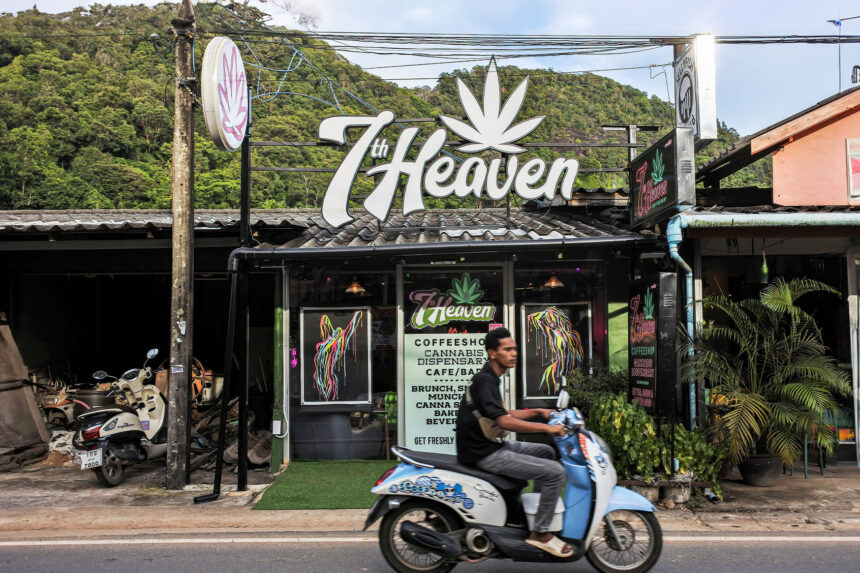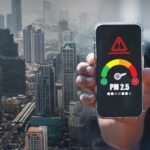BANGKOK – Thailand’s Public Health Minister, Somsak Thepsutin, has signed a new order that makes a doctor’s prescription and medical certificate mandatory for anyone buying cannabis. This step will confine legal cannabis use to medical needs only.
The rule comes as the government responds to the spread of recreational cannabis use, following Thailand’s 2022 move to decriminalise the drug. After three years of rapid industry growth and loose regulation, this policy marks a sharp turn in how the country handles cannabis.
Somlerk Jeungsmarn, head of the Department of Thai Traditional and Alternative Medicine, said on Monday that there will be a grace period before the new requirement starts. “We want everyone to have time to adjust,” he explained, though the government has not yet set an exact date for the changes.
This temporary window should help cannabis business owners and users get ready for stricter rules. For many, the announcement brings both relief and a warning that much tougher oversight is on the way.
Thailand’s Bold Move with Cannabis
Thailand first made headlines in 2018 when it became the first country in Asia to allow medical cannabis. The move gained momentum under Anutin Charnvirakul, then Public Health Minister with the Bhumjaithai Party, who promoted cannabis as a way to support farmers and attract tourists. By June 2022, cannabis was removed from the Category 5 narcotics list, making possession, growing, and adult use legal, except for pregnant or breastfeeding women.
The 2021 Narcotics Code allowed the Public Health Minister to set rules for cannabis and kratom, once they were removed from the narcotics list. But the law required the government to put regulations in place within 120 days, which never happened.
This gap created a legal grey area, letting the recreational market grow with little oversight. Cannabis shops, both licensed and unlicensed, popped up in cities like Bangkok, Chiang Mai, and Phuket. By 2025, over 11,200 shops had official licences.
The cannabis business exploded, reaching a projected value of $1.2 billion per year by 2025. Tourists crowded areas like Khao San Road, buying cannabis products that were often stronger than the legal limits allowed. The government handed out a million free cannabis plants in 2022 to encourage farming, and promoted home growing through the “Plookganja” app.
But the boom raised concerns. Reports of cannabis-related mental health issues grew quickly, with cases rising from 37,000 in 2022 to more than 63,000 in 2023. Studies found that more young people were using cannabis, worrying health experts and parents. Thai media shared stories of violence linked to cannabis, and some countries advised their citizens to avoid using the drug during visits to Thailand.
Prime Minister Paetongtarn Shinawatra, who took office in September 2024, has stressed that cannabis should be for medical use, though she recognises its economic value. Her Pheu Thai Party, which opposed recreational use, faced resistance from their coalition partner Bhumjaithai, who prefer a middle-ground approach. The new prescription rule is seen as a compromise, allowing medical use while limiting access for recreation.
Tourists and Cannabis Shops Face New Limits
For foreign visitors, the prescription rule marks the end of Thailand’s reputation as an easy cannabis destination. “We don’t want Thailand to be known only for cannabis tourism,” Dr. Somlerk said, stressing the aim of changing the country’s image.
Tourists will need to see a licensed medical professional, including traditional Thai medicine doctors, to get prescriptions for conditions like chronic pain, insomnia, or seizures. Anyone caught using cannabis for fun could face a fine of up to 60,000 baht (about $1,700), and public use remains banned under the 1992 Public Health Act.
Cannabis shops, especially the roughly 10,700 that are licensed, now face an uncertain market. The new rules mean only those with proper permits under the Thai Traditional Medicine Act can sell cannabis, and shops must keep careful records of every sale.
Unlicensed sellers, especially those in tourist hotspots, could be forced out of business, while legal stores may have to focus on patients instead of casual users. Prasitchai Nunual from the Cannabis Future Network said, “Many shops are already having a tough time because there’s too much supply,” noting that some have already closed as demand for recreational products falls.
Upcoming Changes in Cannabis Law
Minister Somsak said that cannabis will soon be classified again as a narcotic, which he believes will fix lingering issues from past policies, such as its current status as a controlled herb under the Traditional Thai Medicine Wisdom Protection Act.
This change will also mean new rules for licensing and renewals, increasing government control. Somsak rejected claims that these moves are driven by politics, and said that the Bhumjaithai party’s Cannabis Control Bill will likely not pass while this government is in charge.
Thailand now faces the challenge of keeping the benefits of its cannabis industry while addressing concerns about health and abuse. The new prescription rule and the plan to reclassify cannabis as a narcotic show a clear move away from the free-market approach of 2022, but the grace period lets businesses and users prepare for what’s next.
As the country steps back from open recreational use, tourists, shop owners, and officials are all waiting to see how these changes will shape Thailand’s future with cannabis.














